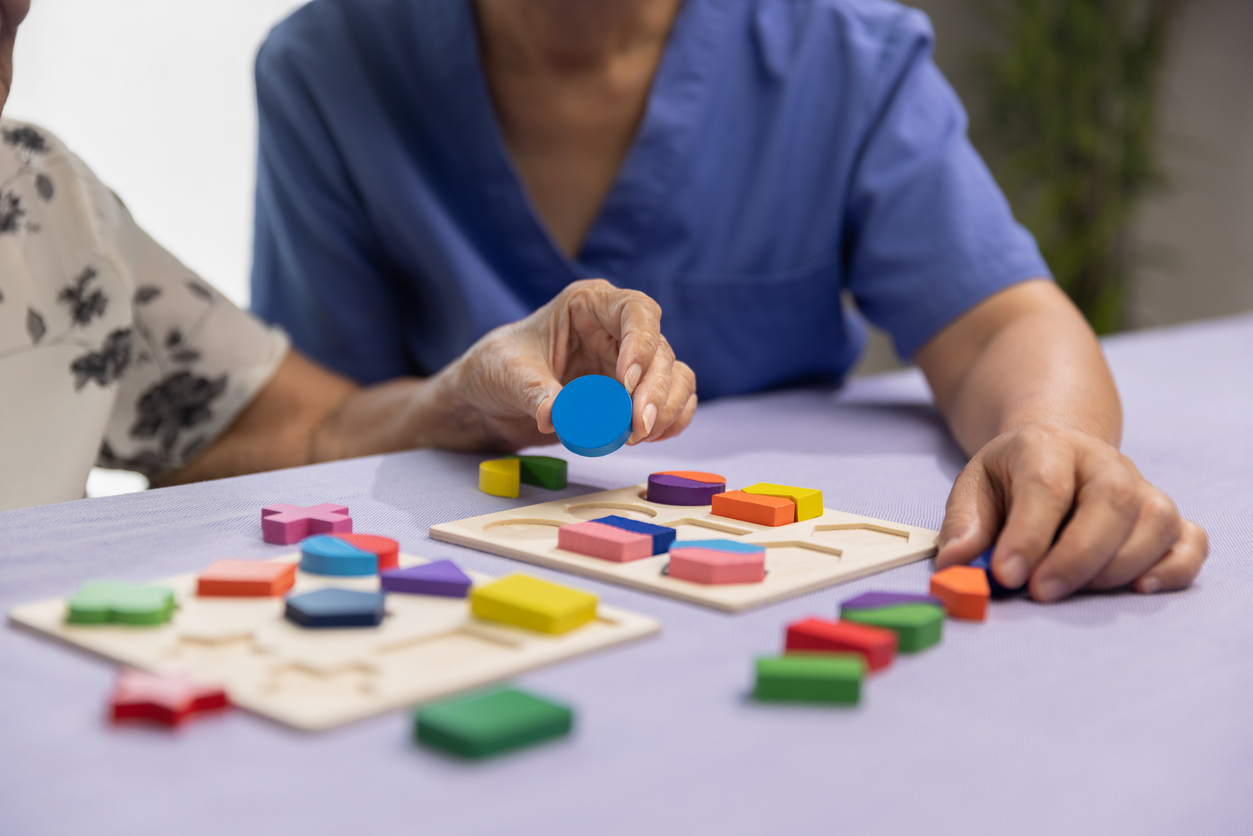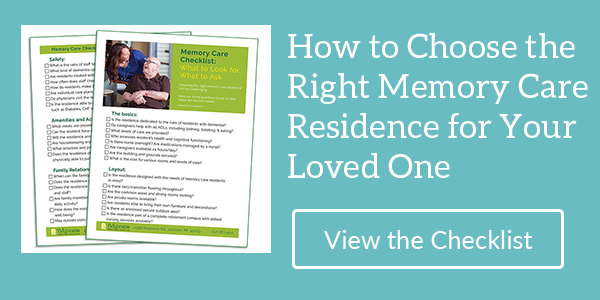Making the decision to move yourself or a loved one to a memory care community should be a well-informed one. All memory care communities are not created equal, but the best have several things in common. When comparing memory care communities be sure to include the following list of essential services.
Services Provided by Memory Care Communities
Safety and Security
For many families, keeping a loved one with dementia or Alzheimer’s disease safe and secure at home can quickly become an overwhelming task. Among the many challenges are problems for many seniors, like ascending and descending stairs, bathroom dangers, and mobility problems. Add to that those dementia-specific concerns like forgetting to turn off stoves and ovens, getting lost even in their own home, wandering away from home, and medication mismanagement, and keeping a loved one safe and secure may require around-the-clock oversight.
Memory care communities recognize the need to be extremely vigilant about safety and security. As a result, residents of high-end memory care communities like Ganton’s Countryside live in an environment that was designed from the ground up to be accessible, but with an added level of security so residents are always under the oversight of certified staff and cannot leave the community unattended. Staff members check on residents regularly day and night, and always treat them with respect and compassion. Take a look at what Ganton’s Brightside Memory Care has to offer!
Cognitive Therapies
One of the greatest advancements in dementia care is the addition of cognitive therapies that help mitigate symptoms of the disease without medications. Although these therapies cannot cure dementia they can have positive effects on how a senior acts and feels, as well as their ability to process information.
For example, according to the dementia.org article, “Treatments for Dementia: Preventative Measures,” cognitive stimulation therapy is used to train memory, language ability and problems solving skills which help to improve overall cognition, memory and reasoning. In addition, behavioral therapy is used to help minimize feelings of anxiety, aggression, depression, and other negative symptoms, including wandering. These therapies and others are just one part of the many ways memory care communities work with residents to help them retain their independence and well-being.
Social Engagement in Memory Care Communities
For many seniors living at home with dementia, their ability to socialize begins to suffer. Families may try to visit and take them to events but it can become more and more difficult as the disease progresses.
Memory care communities are a great solution because they are exactly that: communities! With friendly staff and other residents close by, memory care communities offer seniors daily opportunities to interact with peers through games, classes, entertainment, and activities. According to the dementiacarecentral.com article, “Importance of Maintaining Social Interactions & Activities with Dementia or Alzheimer’s,” being social helps boost self-esteem which is key to a healthier life.
Care as Needed
Memory loss carries with it a lot of baggage. There are expected memory losses like names of people and places, but according to our blog, “The Cognitive Changes in Older Adults You Should Watch For,” seniors may also forget to shower, brush their teeth, and eat, and may experience problems with decision making and judgment. They also often struggle with medications (which can have disastrous outcomes), may not dress appropriately for the season, forget to use the bathroom when needed, and struggle to remember where their bedroom is, much less manage to change linens and keep up with laundry and housekeeping.
In memory care communities, residents and their families have peace of mind knowing that many of the tasks of self-care and home care are included in the package. Whether they need help with personal hygiene and dressing, continence management and toileting, medication management, or just getting around, staff are there as needed to lend a caring hand.
Wellness
Overall wellness is essential to quality dementia care, and memory care communities also put great nutrition on the priorities list with chef-prepared meals in a formal dining room or even served in a resident’s room. Also necessary is exercise which is often hard to maintain at home, but is part of the everyday routine in memory care. Like cognitive exercise, physical exercise helps residents stay fit by building muscle mass, improving balance, coordination and mobility, and increasing endurance, all of which may even improve sleep quality. Learn more about the benefits of exercise for dementia in the National Institute on Aging article, “Staying Physically Active with Alzheimer’s.”
Ganton’s Countryside offers comprehensive and caring memory care designed to help each resident stay safe and enjoy lie to the fullest. For more information about Countryside, please call Margaret Nagel at (517) 206-5000 or download our brochure to learn about our care levels, cost, and amenities.


